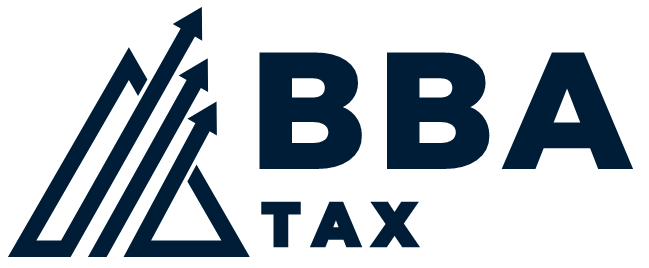Expense reimbursements are a crucial aspect of financial management for any business owner. They ensure that employees are fairly compensated for expenses incurred while conducting business activities. Proper handling of expense reimbursements not only helps maintain employee satisfaction but also ensures compliance with tax regulations and contributes to accurate financial reporting. In this comprehensive guide, we will delve into everything you need to know about expense reimbursements as a business owner, providing you with the knowledge and tools to manage this process effectively.
What Are Expense Reimbursements?
Expense reimbursements are payments made by an employer to an employee to cover business-related expenses incurred by the employee. These expenses can include travel costs, meals, lodging, supplies, and other expenditures necessary for performing job duties. Reimbursements are typically processed through an expense report submitted by the employee, which outlines the details of the expenses and includes receipts or other proof of purchase.
Types of Reimbursable Expenses
As a business owner, it is important to understand the different types of expenses that can be reimbursed. Common categories include:
- Travel Expenses: Costs for transportation, such as airfare, train tickets, car rentals, and mileage for personal vehicle use.
- Meals and Entertainment: Expenses for meals and entertainment incurred during business meetings or while traveling for work.
- Lodging: Hotel or accommodation costs for employees traveling on business.
- Office Supplies and Equipment: Purchases of office supplies, tools, or equipment needed for job performance.
- Training and Development: Fees for attending workshops, conferences, or training programs related to the job.
- Miscellaneous Expenses: Other costs that may arise in the course of business activities, such as postage, parking fees, or internet charges.
Establishing an Expense Reimbursement Policy

To ensure a smooth and consistent reimbursement process, it is essential to establish a clear expense reimbursement policy. This policy should outline the types of expenses that are eligible for reimbursement, the procedures for submitting expense reports, and the documentation required. A well-defined policy helps prevent misunderstandings, ensures compliance with tax regulations, and provides employees with clear guidelines.
Key Elements of an Expense Reimbursement Policy
- Eligible Expenses: Clearly define which expenses are reimbursable and provide examples for each category.
- Submission Procedures: Outline the steps employees must follow to submit an expense report, including deadlines and required documentation.
- Approval Process: Specify who is responsible for approving expense reports and the criteria used for approval.
- Documentation Requirements: Detail the types of documentation needed, such as receipts, invoices, or travel itineraries.
- Reimbursement Limits: Set limits for specific expenses, such as daily meal allowances or maximum lodging rates.
- Payment Timeline: Indicate the timeframe within which employees can expect to receive their reimbursements.
Managing Expense Reports
Proper management of expense reports is crucial for maintaining accurate financial records and ensuring timely reimbursements. Implementing an efficient system for processing expense reports helps streamline the workflow and reduces the risk of errors.
Steps for Processing Expense Reports
- Submission: Employees submit their expense reports along with the required documentation.
- Review: The designated approver reviews the report to ensure that all expenses are eligible, properly documented, and within policy limits.
- Approval: Once reviewed, the approver either approves the report for reimbursement or requests additional information or corrections from the employee.
- Payment: Approved expenses are processed for payment, and the employee receives the reimbursement within the specified timeframe.
- Recordkeeping: Expense reports and supporting documentation are filed and maintained for accounting and audit purposes.
Common Challenges in Managing Expense Reports
- Incomplete Documentation: Missing or inadequate documentation can delay the approval process and lead to discrepancies.
- Policy Violations: Employees may submit expenses that do not comply with the reimbursement policy, requiring additional review and clarification.
- Errors in Reporting: Mistakes in expense reports, such as incorrect amounts or misclassified expenses, can complicate the approval process.
- Timeliness: Delays in submitting or processing expense reports can cause frustration and impact cash flow.
Tax Implications of Expense Reimbursements

Understanding the tax implications of expense reimbursements is vital for both the business and its employees. Properly managing these reimbursements ensures compliance with tax laws and avoids potential penalties.
Business Deductions
Expense reimbursements can be deducted as business expenses on the company’s tax return, provided they meet certain criteria. To qualify for a deduction, expenses must be:
- Ordinary and Necessary: Expenses must be common and accepted in the industry and necessary for conducting business.
- Directly Related to Business: Expenses must be incurred while performing job duties or conducting business activities.
Employee Reimbursements and Taxes
Reimbursements made under an accountable plan are not considered taxable income for employees. To qualify as an accountable plan, the reimbursement arrangement must meet three criteria:
- Business Connection: Expenses must be directly related to the business.
- Substantiation: Employees must provide adequate documentation, such as receipts, to substantiate the expenses.
- Return of Excess: Any excess reimbursement (amounts paid beyond actual expenses) must be returned to the employer within a reasonable timeframe.
If the reimbursement arrangement does not meet these criteria, the payments are considered taxable income and must be reported on the employee’s W-2 form.
Recordkeeping for Tax Purposes
Maintaining accurate records of expense reimbursements is essential for tax compliance and audit purposes. Businesses should keep detailed records of all reimbursed expenses, including:
- Expense Reports: Copies of submitted and approved expense reports.
- Receipts and Documentation: Original receipts, invoices, and other supporting documentation.
- Payment Records: Records of reimbursement payments made to employees.
Best Practices for Expense Reimbursements
Implementing best practices for managing expense reimbursements helps ensure efficiency, compliance, and employee satisfaction. Here are some key practices to consider:
Utilize Expense Management Software
Investing in expense management software can streamline the entire reimbursement process. These tools offer features such as automated expense report submission, receipt scanning, and integration with accounting systems. By automating routine tasks, businesses can reduce errors, save time, and improve accuracy.
Educate Employees
Providing employees with training on the expense reimbursement policy and procedures is crucial. Regular training sessions or informational materials help ensure that employees understand the policy, know how to submit expense reports, and are aware of the documentation requirements. Clear communication reduces the likelihood of policy violations and errors.
Regularly Review and Update Policies
Expense reimbursement policies should be reviewed and updated regularly to reflect changes in tax laws, business practices, or industry standards. Periodic reviews ensure that the policy remains relevant and effective. Solicit feedback from employees to identify any pain points or areas for improvement.
Monitor and Enforce Compliance
Consistent monitoring and enforcement of the expense reimbursement policy are essential for maintaining compliance. Regular audits of expense reports help identify any discrepancies or policy violations. Addressing issues promptly and enforcing consequences for non-compliance ensures that employees adhere to the policy.
Encourage Timely Submissions
Encouraging employees to submit expense reports promptly helps maintain accurate financial records and ensures timely reimbursements. Setting clear deadlines and providing reminders can help reinforce this practice. Timely submissions also reduce the risk of lost documentation and discrepancies.
Implement Pre-Approval for Large Expenses
Requiring pre-approval for large or unusual expenses can prevent disputes and ensure that expenditures align with the company’s budget and policies. Implementing a pre-approval process for travel arrangements, high-cost purchases, or significant expenses provides an additional layer of oversight.
Common Expense Reimbursement Mistakes to Avoid
Even with a well-defined policy and efficient processes, mistakes can still occur. Here are some common expense reimbursement mistakes to avoid:
Overlooking Policy Violations
Failing to enforce the expense reimbursement policy consistently can lead to misunderstandings and non-compliance. It is important to address policy violations promptly and provide feedback to employees to prevent recurring issues.
Neglecting Documentation Requirements
Incomplete or missing documentation can delay the approval process and lead to discrepancies. Ensure that employees understand the importance of providing adequate documentation for all expenses and regularly remind them of the requirements.
Inconsistent Approval Processes
Inconsistencies in the approval process can cause confusion and delays. Standardize the approval process and ensure that all approvers follow the same criteria and procedures. Regular training for approvers can help maintain consistency.
Delaying Reimbursements
Delays in processing reimbursements can lead to employee dissatisfaction and financial strain. Establish clear timelines for reviewing and approving expense reports, and prioritize timely reimbursement payments.
Failing to Keep Accurate Records
Accurate recordkeeping is essential for tax compliance and financial reporting. Maintain detailed records of all reimbursed expenses, including copies of expense reports, receipts, and payment records. Regular audits can help ensure that records are complete and accurate.
Conclusion
Expense reimbursements are a vital aspect of financial management for any business owner. By establishing a clear expense reimbursement policy, managing expense reports efficiently, and understanding the tax implications, you can ensure compliance, maintain employee satisfaction, and accurately track business expenses. Implementing best practices and avoiding common mistakes will help streamline the process and contribute to the overall success of your business. At BBA Tax, we are here to support you with expert advice and personalized services for managing your expense reimbursements and all your accounting needs.



